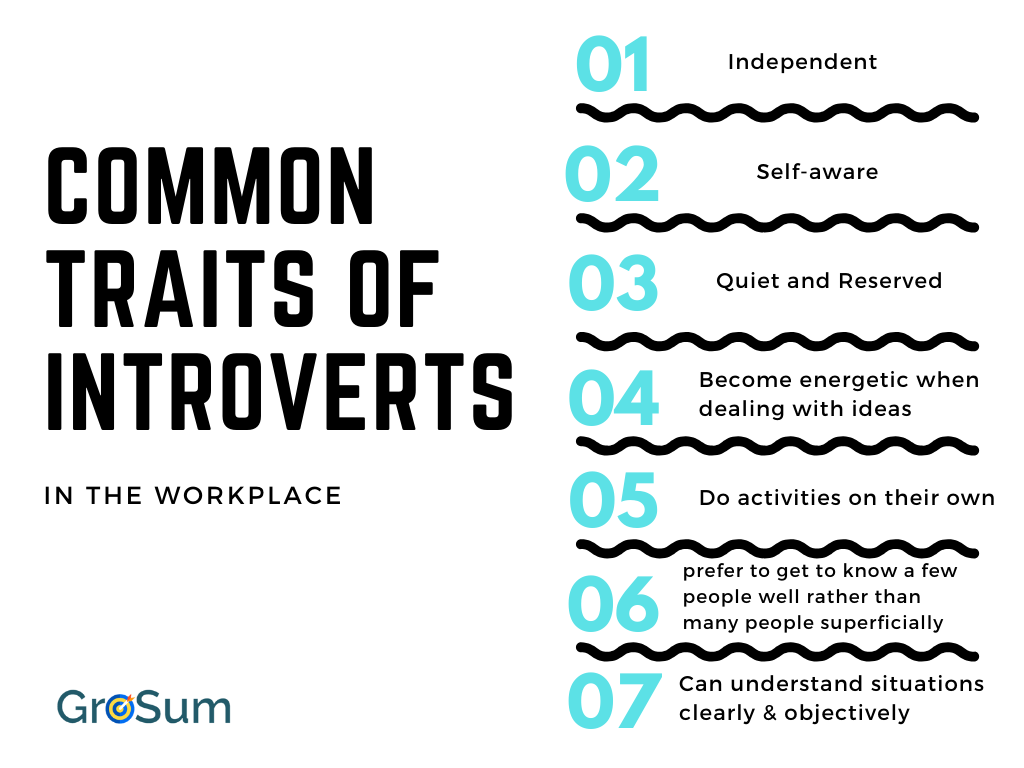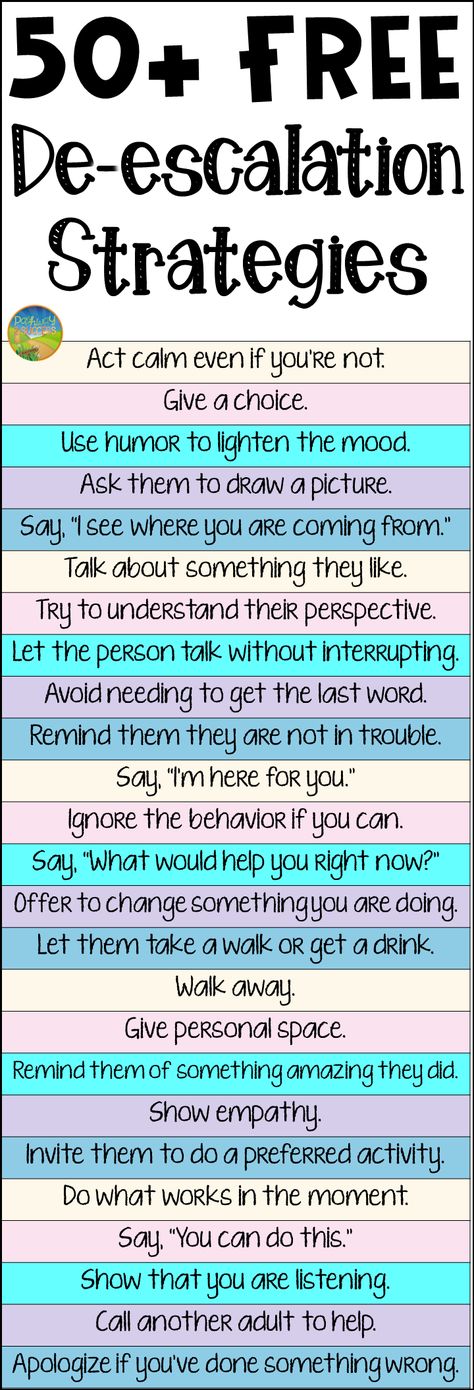Emotionally neglected wife
Signs and Causes of Emotional Neglect in a Marriage
We’re all familiar with the idea of happily ever after, but the truth is that happily ever after rarely comes without a few bumps in the road. Life is filled with plenty of ups and downs, and there are days when everyone wants to tune out and wait for the storm to pass—this is normal. However, when that type of coping mechanism turns into weeks and months, this could be a signal that something much bigger is going on, like emotional neglect in a marriage.
What Is Emotional Neglect?
Emotional neglect is marked by a distinct lack of action by one person toward the feelings of the other, including an absence of awareness, consideration, or response to a spouse's emotions. Hallmarks of emotional neglect in marriage include a lack of emotional support and failure to meet a partner’s needs.
According to associate marriage and family therapist Sarah O’Leary, "Emotional neglect is when someone’s attachment and/or emotional needs are disregarded. " She adds, "Emotional neglect, unsurprisingly, pushes couples apart; you can’t feel emotionally safe or secure in a relationship with emotional neglect. It can also really negatively affect your own personal well-being—both mentally and physically."
Meet the Expert
Sarah O’Leary is an associate marriage and family therapist who currently practices with Estes Therapy in San Diego. Her areas of expertise include premarital counseling, relationship issues, and life transitions.
The interesting aspect of emotional neglect is that the victim may only have a vague sense that something is amiss. Without tangible evidence or written proof, they’ll likely find it hard to quantify or express what the issue is. In the end, many people tend to stay in relationships that aren’t working because there is no smoking gun, even as the relationship is crumbling around them.
Ahead, we take a deep dive into the topic of emotional neglect. We discuss common signs to be on the lookout for and share a few tips for coping with emotional neglect in marriage.
Signs of Emotional Neglect
While it may be difficult to identify emotional neglect, there are some telltale signs that could help you recognize it in your marriage. O’Leary notes the many ways this behavior can play out in a marriage, including invalidating your partner, ignoring your partner or their bids for connection, or disregarding the vulnerabilities they share or boundaries they assert. Some common signs of emotional neglect are:
- You feel like you’re alone in your relationship.
- You prefer to spend time alone vs. time with your partner.
- Your partner shuts down when you want to talk.
- You’re not sure what your partner wants from you.
- You don’t engage in social activities as a couple.
- Your go-to person is a friend, not your partner.
- You consistently ignore or suppress your feelings.
- You don’t feel comfortable around your family and friends.
- You procrastinate on long-term decisions and are hesitant to move forward with things like having kids or buying a home.

- There’s a lack of physical intimacy.
- You don’t feel like you can be yourself with your partner.
- You don’t trust your partner.
Causes of Emotional Neglect
The specific causes of emotional neglect may vary from one relationship to the next, but the overarching theme is a shift or transfer in the support one partner gives to the other. This could look like one partner throwing themselves into a new job or a new mom shifting her focus to her baby. And, of course, in some cases, emotional neglect in a marriage might be the result of an extramarital affair.
O’Leary also notes that the cause of emotional neglect could run deeper. "Emotional neglect often stems from an individual’s own attachment injuries. If someone never learned how to have a supportive, healthy relationship in childhood or adolescence, they will struggle to make that change in adulthood."
O’Leary goes on to share, "Struggle does not mean unable; however, it will take work, but the way you interact with others and within your relationships is malleable. "
"
How to Cope With Emotional Neglect
Like most issues, complaining about the problem or staying silent won’t fix anything; for committed couples, the key to getting past this situation is working together. Ahead we discuss some tips on how to handle emotional neglect in a marriage.
Don’t Be a Victim
While your partner’s behavior may be hurtful, it’s important that you don’t play the victim card. Doing so can be counterproductive; you’ll likely be more accusatory and fall back on the blame game to no avail. The fact is, if you spend most of your time and energy telling your partner what they did wrong or how they hurt you, that could put them on the defensive and cause them to distance themselves further.
While it’s important to talk to your partner and let them know how you feel, it’s equally important that you don’t rehash the same things over and over again. Perhaps the initial conversation should focus on your hurt feelings, but once you get it out, subsequent discussions should be focused on how to fix the problem and move on to a healthier dynamic in your relationship.
Examine Any Underlying Causes for the Behavior
Just like any problem you tackle in life, it’s important to spend some time thinking about what sparked the issue, or in this case, the behavior, in the first place. Ask yourself the following questions:
- Was your relationship always like this or did it deteriorate over time?
- Does it feel like your partner’s attitude changed from one day to the next?
- Is there a situation or event that precipitated their change in behavior?
If your partner’s emotionally neglectful behavior has always been a part of your relationship, this might be a far bigger issue than you realize. However, if you can trace this change in behavior back to a specific event, or you can say with some certainty that your partner is just going through a rough patch, that could make all the difference in how this all plays out. If being emotionally unavailable is just how they operate, changing their behavior will be substantially more difficult, if it’s possible at all. However, if this behavior is situational, your chances of mending the relationship are likely far greater.
However, if this behavior is situational, your chances of mending the relationship are likely far greater.
Be Proactive
With any relationship, it takes two to tango, and while the source of neglect might be coming from your partner, it’s probably not a good idea to just sit back and wait it out. Remember that sometimes people don’t recognize their own behavior. So, if your partner doesn’t realize that they are being neglectful or hurting you, you’ll likely never see a change because they don’t even know that something is wrong.
While it’s tempting to think that the onus is solely on the responsible party to right the wrong, remember that relationships are not one-sided. If you want to be with this person, then it’s time to start thinking about how you can work together to fix it.
Talk About It Constructively
As difficult as it might be, it’s important that you and your partner invest the time to sit down and talk about your relationship. Be sure to pick a time where upcoming commitments don’t put your eyes on the clock, and perhaps most importantly, try to do it when you have the bandwidth to deal with it. Trying to have a productive conversation when you’re tired, hungry, or stressed will never be fruitful.
Be sure to pick a time where upcoming commitments don’t put your eyes on the clock, and perhaps most importantly, try to do it when you have the bandwidth to deal with it. Trying to have a productive conversation when you’re tired, hungry, or stressed will never be fruitful.
Additionally, it’s important that you make the conversation constructive. Angry words, hurling accusations, and pointing fingers are never helpful. If saving your relationship is the ultimate goal, you must approach the conversation from a place of love, understanding, and forgiveness.
Make Arrangements to Spend Quality Time Together
While spending more time with an emotionally neglectful partner may seem counterintuitive, sometimes that could be precisely what the relationship needs. Getting some distance from the stress of everyday life, work, and other demands can give everyone a little room to breathe. In the absence of "the noise," you can spend much-needed time focusing on each other. Who knows, it might be just the thing you need to rekindle the spark.
Who knows, it might be just the thing you need to rekindle the spark.
Seek Professional Help
Emotional neglect in marriage is an issue that can be incredibly difficult to fix on your own, but a good therapist can be infinitely helpful. A trained professional can facilitate constructive conversations, help you get some perspective, and give you both the space to express your feelings.
Moreover, a therapist is an unbiased third party who can identify emotional neglect. Coming from a neutral entity, your partner might be more likely to "hear" it and make amends.
Be Patient
Remember that issues that take months or years to play out cannot be resolved overnight. Correcting a pattern of emotional neglect is most certainly a labor of love if there ever was one.
Getting your relationship back on track takes hard work, patience, and time. If you seek professional help, remember to put your best foot forward and trust the process.
Does Marriage Counseling Really Work?
25 Signs of Emotional Neglect in Marriage & How to Deal With It
In This Article
Emotional neglect in marriage is one thing no one prays for or wishes upon themselves. This is because neglect in marriage is often a terrible experience and a lack of emotional connection in marriage is one way to make any relationship crash within record time.
This is because neglect in marriage is often a terrible experience and a lack of emotional connection in marriage is one way to make any relationship crash within record time.
Imagine for one second that you are a wife feeling neglected by her husband. His lack of emotional support is as clear as day and you have done all you can to get his attention back to yourself. Can you feel the hurt and pain that accompanies just these thoughts?
If the mere thought of being neglected by your husband elicits these reactions in you, can you imagine what the people who actually have to live through this experience truly feel? It would be beyond imaginable!
In any case, if you have been feeling neglected in marriage, this article is especially for you. In this article, we will show you how to handle those feelings, the signs of emotional neglect in marriage, and some proven strategies for overcoming emotional neglect in marriage.
What is emotional neglect in marriage?Before getting into the detailed definition of emotional neglect in marriage, it is important to first understand what ‘neglect in marriage’ means. Neglect, as a form of abuse, is simply the act of failing to care for someone properly.
Neglect, as a form of abuse, is simply the act of failing to care for someone properly.
While this comes with its fair share of mental and emotional trauma on the part of the recipient, neglect can be passive (when it comes from a place of ignorance or unintentional dissociation from a person) or active (when it is calculated, premeditated, and intentional).
Neglect in marriage occurs when one (or both) parties fail to be there for themselves and their family in marriage. It usually leads to an emotional separation or estrangement and can lead to broken homes within record time.
By extension, emotional neglect in marriage occurs when one partner continuously fails to notice, attend to, and respond to their partner’s emotional needs in a marriage.
As a result, the other partner spends most of their time feeling lost, alone, and (may even feel) worthless in the marriage.
One of the major downsides of this form of emotional abuse (and other forms of emotional abuse by extension) is that they are usually accompanied by other forms of abuse (like physical abuse), after which the relationship may keep going south.
The simple answer to this is ‘no.’ Although, with some effort and physical exertion, it is possible to stay put in a relationship where there is no emotional connection, over time you may find yourself wanting out of that marriage.
Hence, one of the major challenges with emotional neglect in marriages is that if it goes unresolved, the marriage may end in a divorce.
What is an example of emotional neglect?To help you get a better mental picture of what emotional neglect truly is, here is a graphical example of the scenario.
Imagine you return home from work after a long and terrible day. You are bristling and can’t wait to get back home and into the arms of your husband.
Then, you walk into the door and you meet a husband who is so focused on something else he doesn’t even notice that all you have said to him since you walked into the door have been one-word answers.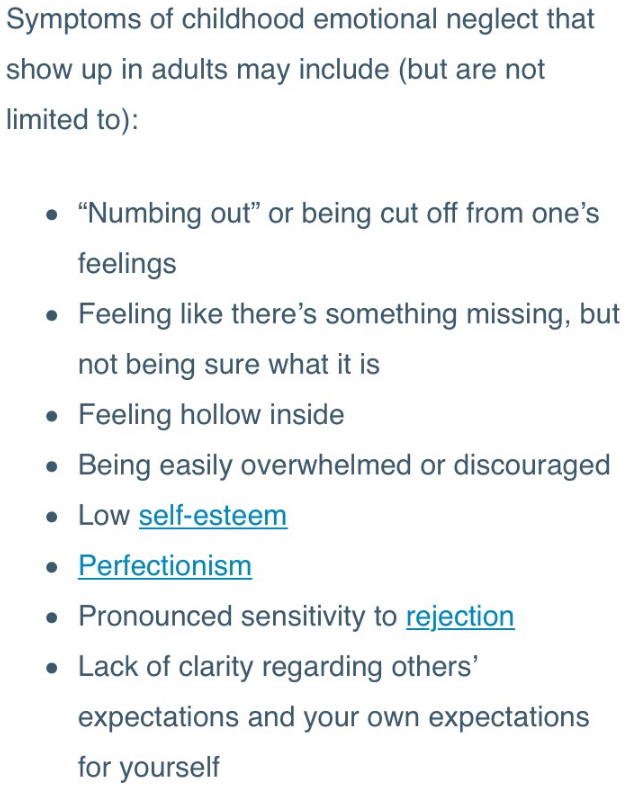
At this point, it is easy to brush it off and call his response ‘the result of a busy workday.’
However, imagine this continues over the next few months and you even try to reach out to him, only to be met with chastisement and a sense of defensiveness from him.
Wouldn’t this prolonged act of your husband neglecting his wife cause you to start withdrawing from him?
This is one of the common scenarios that play out in many marriages; scenarios of emotional neglect in marriages.
Is emotional neglect grounds for divorce?The sad thing is that a quick search on Google doesn’t reveal any ‘holy grail of divorce scenarios.’ Hence, this question might be a tad dicey to answer.
Although divorces in America are generally classified under no-fault and fault-based divorce scenarios, the final decision of whether to call it quits and focus on repairing your life, or holding onto the reins of this marriage to an emotionally unavailable is completely up to you.
However, before making a final decision, take out some time to consider every factor in play like the wellbeing of your children, the extent of trauma/abuse you have endured, and any other factor you feel is important.
25 signs of emotional neglect in marriageNow that we have examined all these, here are some of the classical signs of neglect in marriages.
1. Your feelings and thoughts are neither heard nor respectedIf you feel like you have started becoming a relic in your marriage (your feelings and opinions do not matter to your spouse any longer), it could be a sign that you are dealing with emotional neglect in your marriage.
2. You feel lonelyOne of the emotional neglect symptoms in marriage is the feeling of being lonely. Do you feel alone even when your partner is physically there? That may be a sign staring you in the face.
Related Reading: Are You Feeling Alone in a Relationship?3.
 You seek support from outside
You seek support from outside One of the perks of being married is that you have someone who loves and supports you completely.
However, if a time comes when you find yourself seeking the support of strangers more than the support of your spouse, it could be because of emotional neglect in marriage.
4. Your spouse would rather support others than youHow does your spouse relate to you when it comes to choosing between you and others? Do they tend to lean in the direction of supporting other people more than they support you?
If they do, they may be neglecting you emotionally.
5. Your spouse is more concerned with friends and familyWhen the time comes to make things happen for their friends and family, they are always available and would do anything to see those goals achieved. However, not showing that same level of commitment to you could be a sign of emotional negligence.
6. Lack of physical intimacyAlthough it seems unrelated, lack of physical intimacy could be a sign that your spouse is emotionally unresponsive to you.
The research documented by the National Library of Medicine revealed that there is a strong correlation between sexual and emotional intimacy as it is easier and more sustainable for people to connect sexually when they are emotionally intimate.
What does this imply? This simply suggests that a lack of physical intimacy (in the absence of other factors like a decline in health or increasing external pressure) could be a sign of emotional and physical neglect in a marriage.
7. No empathyWhen one partner is going through hard times, they should be able to share their challenges with their spouse and receive empathy and significant acts of help from them. When this is absent in your marriage, it could be a sign that something is wrong.
8. You are always being interrupted, even when what you want to say is importantThis may seem like it is little, but it says a lot about the state of your relationship every time.
When a person interrupts you, it could mean that they aren’t listening to you, consider what they have to say more important than what you are saying, or simply think you are being a nuisance to them.
Does your spouse continuously treat you this way? Then it may be a sign that there’s a lack of emotional intimacy in the relationship.
9. Dysfunctional communicationCommunication is the foundation of every successful relationship. When it feels like you are beginning to struggle with communicating with your spouse, it could be because they are no longer as emotionally available as they once were.
10. You are one of the last people to find out the details about your spouse’s lifeThey can be undergoing or even making major changes you would know nothing about., this can involve big changes like switching jobs or even taking a loan.
11. At extreme levels, you may not even know about these changes at allAt some other times, you may not even know about the changes that your spouse has made at all, until it has become too late or until you hear them from another person.
For example, they may take a loan and you wouldn’t hear a word of it from them until the debt collectors come for your assets.
Another classical sign of emotional neglect in marriage is simply feeling unappreciated. One of the things that would begin to happen when you feel neglected by your husband or wife is that you would begin to feel unappreciated.
Does it feel like you are putting in so much effort and your spouse just turns blind eyes to them all? That could be a sign right there.
Related Reading: 10 Things to Do if You Feeling Unappreciated in a Relationship13. Your spouse stops arguing or fighting with you
While this may seem like a dream come through, a sudden refusal to make you see from their point of view can suggest that your spouse is becoming emotionally separated from the marriage.
This is because fights and arguments are a sign that both parties are invested in the marriage and want to make things work.
Related Reading: 15 Things to Do When a Guy Ignores You After an Argument14.
 Or, you may be arguing much more than normal
Or, you may be arguing much more than normal This is the flip side of the conversation that was raised from the last point.
When you find out that you are suddenly fighting over everything (including the things you would have once settled by having a decent conversation like adults), it may be a sign of emotional neglect in your marriage.
Suggested video: How to stop fighting in a relationship and resolve conflicts in marriage.
15. Your spouse does all they can to stay away from youThis could manifest itself as working longer hours, taking frequent breaks that involve traveling alone, or the simple act of sleeping in another bedroom (especially if this wasn’t always the norm for you).
16. You are becoming more independent than usualAnd this isn’t in the right way. It is simply because trying to reach out to them always leaves you more emotionally distraught and downcast. So, you would rather spend your time and efforts trying to figure things out than confide in your spouse.
It is simply because trying to reach out to them always leaves you more emotionally distraught and downcast. So, you would rather spend your time and efforts trying to figure things out than confide in your spouse.
Related Reading: How Being Too Independent Can Destroy Your Relationship17. Your pile of secrets is growing
Once, you used to be completely honest with your spouse even when you messed up about something.
However, a sign of emotional neglect in marriages is the abundance of secrets. As a husband feeling neglected by his wife (or vice versa), you would rather keep things to yourself than open up to your spouse about them.
18. Your spouse becomes too criticalAnother sign of emotional neglect in marriage is that your spouse may become too critical of you.
At this point, nothing you do ever satisfies or makes them happy again and it just seems like they are on a never-ending quest to show you just how wrong you are, every time.
Related Reading: 15 Critical Spouse Signs and How to Deal With It19. The silent treatment sets in
Remember we already indicated that emotional negligence can be passive or active, right?
Another clear sign of emotional neglect in marriages is the silent treatment you would begin to get from your spouse. Under these conditions, nothing you do would ever elicit a response from them again.
Related Reading: How to Deal With Silent Treatment in Marriage20. Your partner begins to slack in taking care of themself
Emotional neglect doesn’t only affect the other person. It also takes its toll on the person dishing it out in the marriage. Sooner or later, the underlying tension in the marriage will begin to reflect as your a failure of your spouse to take good care of themself.
21. You begin to withdrawWhen it becomes evident to you that there’s no more emotional intimacy in the relationship, your knee-jerk reaction would be to withdraw; from your spouse, the relationship, and everything that reminds you of what is going on in your marriage.
Once emotional intimacy begins to die down, affection would decline with it. At some point, you may even find yourself struggling to feel any form of affection for your spouse. This is usually after emotional neglect has gone on for a long time in the marriage.
23. Super awkward conversationsWhen you finally get over yourselves and make some half-hearted attempts at communication, your conversations may be full of awkward pauses, so many “uhms” and uncomfortable moments of silence. This is usually the result of drifting apart over time.
24. You are suddenly walking on eggshells around each otherThe little things you used to be carefree about (like walking around the house in your underwear or stealing a cookie piece from your spouse’s plate during dinner) become unappealing for you.
Then again, your spouse always seems to be cranky these days so you aren’t exactly sure what would set them off. You would rather hold your breath around them than be at the receiving end of their anger.
You would rather hold your breath around them than be at the receiving end of their anger.
This is usually the final stage of emotional neglect in marriage. Beyond this is what is usually considered the breaking point; the point at which one person would make the decision to call it quits or seek professional help.
If you have gotten to this point, you may want to take the next section of this article more seriously.
How to deal with emotional neglect in marriageHere are a few pointers to help you sort through your mind and define the most profitable direction you should move in, once you have confirmed that you are dealing with emotional neglect in marriage.
1. Take a while to process your feelingsIt is okay to feel hurt and angry with your partner. If you don’t process these feelings, you may end up making the wrong decisions.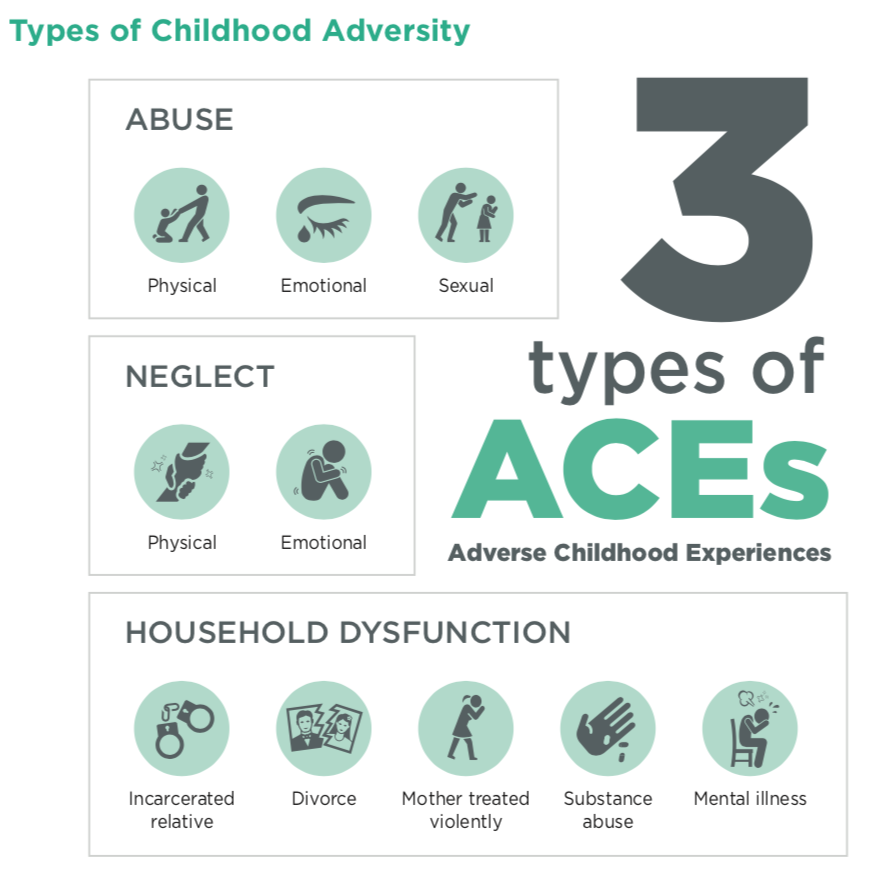
This may be a bit difficult considering the communication lapses you may have noticed in your marriage. However, it is important that you open up to your partner about how their actions have been affecting you negatively.
Related Reading: 10 Effective Communication Skills in Relationships for Healthy Marriages3. If they are open to communication, suggest best practices
It is not enough to tell your spouse what you think they are doing wrong. Tell them what they must do to make things right. This is where clearly-spelled-out action plans come to play.
Then again, encourage them to also tell you what you must do to make the marriage great again. This way, they don’t feel like you are trying to make them fit a construct they don’t want to fit into.
Related Reading: Open Communication In a Relationship: How to Make it Work4. Consider therapy
Under these conditions, therapy works wonders. Alongside your spouse, you may want to map out time to consult with a professional who would help you sort through your feelings and make sense of what’s going on in your marriage.
Alongside your spouse, you may want to map out time to consult with a professional who would help you sort through your feelings and make sense of what’s going on in your marriage.
Emotional neglect in marriage, if left unattended, can lead to breakdown and divorce. Consider the 25 signs we have discussed in this article if you feel like you are currently going through this in your marriage.
Then again, counseling and professional guidance from qualified therapists is one way to let go of the pain and move on with your life. To get started with therapy, click here to find expert therapists near you.
why boring is boring, and multitasking is a myth - T&P
The human brain is not capable of solving two tasks at the same time. New technologies are celebrating multitasking, but research provides clear evidence that this approach reduces productivity and increases errors. Why it’s better to do one thing, which makes us bad at remembering details and why emotional arousal is useful - T&P publishes a chapter from molecular biologist John Medina’s book “The Rules of the Brain.
 What you and your children should know about the brain”, which was published by Mann, Ivanov and Ferber.
What you and your children should know about the brain”, which was published by Mann, Ivanov and Ferber. As you read this paragraph, millions of sensory neurons in your brain fire up simultaneously, trying to get your attention. Only a few of them manage to convey a message to consciousness, the rest are partially or completely ignored. It's amazing how easily this balance can be maintained, effortlessly giving airtime to one of the many messages that were previously ignored. (As you read this sentence, are you aware of where your elbows are?) Attention-grabbing messages are associated with memory, interest, and consciousness.
What we pay attention to often depends on memory. In everyday life, we use previous experiences to determine what to pay attention to. Different environments are associated with different expectations, a fact demonstrated by physiologist Jared Diamond in his book Guns, Germs, and Steel. He described a journey through the jungles of New Guinea. Compared to Westerners who have been schooled since childhood, New Guineans demonstrate very modest academic ability. But they are by no means stupid. They are able to detect subtle changes in the jungle, which helps in tracking down a predator or finding their way home. They know which insects it is better not to touch and where to find food, they will easily build and destroy a dwelling. Before that, Diamond had never been to such places, so he did not have the ability to pay attention to such things. The result of his testing on such tasks would be very low.
But they are by no means stupid. They are able to detect subtle changes in the jungle, which helps in tracking down a predator or finding their way home. They know which insects it is better not to touch and where to find food, they will easily build and destroy a dwelling. Before that, Diamond had never been to such places, so he did not have the ability to pay attention to such things. The result of his testing on such tasks would be very low.
“New cues—unusual, unpredictable, or different—are a great way to start a chain reaction of attention, that is, interest.”
Culture matters, even if the physicality isn't too different. For example, city dwellers in Asia pay particular attention to the depiction of their surroundings and the relationship between foreground and background objects. But urban Americans don't. They pay attention to the central objects, and then to the background; their sensory perception is much weaker. Such differences affect whether a business presentation or a school lecture will grab the audience's attention.
Fortunately, regardless of the type of culture, all people have something in common. For example, it has long been known that the interest or importance of information is inextricably linked with attention. Scientists sometimes refer to this connection as activation. How exactly this happens is still a mystery. Does it attract attention? It is common knowledge that the brain is constantly scanning sensory perception for potentially interesting or important events. Very important events are given special attention. But is the reverse process possible? Can attention generate interest?
Marketers think it's possible. They are well aware that new cues—whether unusual, unpredictable, or different—are a great way to start a chain reaction of attention, that is, interest. A prime example of this is the print ad for Sauza Conmemorativo tequila. The poster shows an untidy, bearded old man in a wide-brimmed hat, who smiles, showing his only tooth. The following inscription is placed next to it: “This person has the only drawback”, and below it is written in large letters: “Life is harsh. Tequila shouldn't be like this." Defying most marketing strategies aimed at a group of twenty-year-olds dancing at a party, this ad became very effective, and public attention grew into interest.
Tequila shouldn't be like this." Defying most marketing strategies aimed at a group of twenty-year-olds dancing at a party, this ad became very effective, and public attention grew into interest.
Of course, in order for something to catch our attention, we must understand what it is about. Can you imagine how difficult it is to study such a short-term phenomenon as attention? Scientists do not know in which part of the brain the alchemical process of perception takes place. (According to some data, this process is controlled by several brain systems.) We have a long way to go to understand its mechanism.
Renowned British neurologist and brilliant inventor, Dr. Oliver Sacks, studied perception. In the book "The Man Who Mistook His Wife for a Hat", which became a bestseller, he described an intriguing case from his practice. One of the doctor's patients, a sweet elderly woman, intelligent, well spoken and with a great sense of humour, suffered from a lesion in the back of her brain, which caused an unusual disorder: she could not focus on things to her left. She recognized all the objects that were in her field of vision on the right side, and could correctly apply lipstick on the right side. She only ate from the right side of the plate, so she complained to the hospital staff that her portions were too small. Only after the plate was unrolled and the food came into view on the right could she see it and continue eating.
She recognized all the objects that were in her field of vision on the right side, and could correctly apply lipstick on the right side. She only ate from the right side of the plate, so she complained to the hospital staff that her portions were too small. Only after the plate was unrolled and the food came into view on the right could she see it and continue eating.
Such cases are of great value to physicians and scientists. When a certain part of the brain is damaged, it becomes clear that deviations in behavior are associated precisely with its functioning. Examination of such a large number of patients as Dr. Sachs's makes it possible to get an overview of which areas are involved in turning on attention. The brain is divided into two hemispheres that perform different functions, respectively, patients experience various disorders depending on which part is affected. Marcel Mesulam from Northwestern University found that there are separate centers of visual attention in the hemisphere. A small center in the left hemisphere is responsible for the visual perception of objects in the field of view on the right. The global visual center is located in the right hemisphere. According to Mesulam, damage to the left hemisphere is less critical for health, since in general it is the right hemisphere that provides visual perception.
A small center in the left hemisphere is responsible for the visual perception of objects in the field of view on the right. The global visual center is located in the right hemisphere. According to Mesulam, damage to the left hemisphere is less critical for health, since in general it is the right hemisphere that provides visual perception.
Of course, vision is only one of the organs of human sensory perception. Smells and sounds are also analyzed by the brain. However, we are also aware of the internal psychological state created by a variety of events and feelings without the specific impact of external sensory stimuli. What happens in our brain when we pay attention to something?
Thirty years ago, scientist Michael Posner developed a theory of attention that is still relevant today. Posner began his research career as a physicist at Boeing shortly after graduating from college. He made his first contribution to science by exploring the possibility of reducing the noise level of an aircraft engine in order to provide passenger comfort. You can thank Posner for this, as his research now gives relative peace of mind during flight, even if the roaring turbine is only a few meters away from the passenger. Apparently, the first work aroused in him an interest in how the brain processes various information. He defended his doctoral dissertation on the basis of this important problem. Posner suggested that a person pays attention to something thanks to three separate but closely interconnected brain systems, which he jokingly called the Trinity.
You can thank Posner for this, as his research now gives relative peace of mind during flight, even if the roaring turbine is only a few meters away from the passenger. Apparently, the first work aroused in him an interest in how the brain processes various information. He defended his doctoral dissertation on the basis of this important problem. Posner suggested that a person pays attention to something thanks to three separate but closely interconnected brain systems, which he jokingly called the Trinity.
One fine Saturday morning my wife and I sat on the terrace of the house and watched a thrush drinking water from a special bird trough; suddenly something whistled over our heads. Looking up, we saw a rufous-tailed owl, which shot down from a nearby tree like an arrow to attack a helpless thrush. Grabbing his prey by the throat, he began to climb up, and drops of thrush blood fell on our table. This end to a serene pastime was a reminder of the cruelty of the real world. We were dumbfounded.
In Posner's model, the first system of the brain works like a guard in a museum, performing two types of duties: observation and warning. The scientist calls it an alarm and activation system. It monitors the sensory aspect of ordinary activities. This is the overall level of attention our brains give to the world; this state is called immanent activation. My wife and I used this system when we drank coffee and watched the thrush. If the system detects anything unusual, such as the flight of a red-tailed owl, it sends an alarm signal to the entire brain. Then the process of phase activation starts, that is, special attention.
After the alarm, we focus on the stimulus that activated the second system. We can turn our head in the direction of the signal, listen, perhaps move closer or further away. That is why my wife and I stopped looking at the thrush and turned our attention to the shadow cast by the owl. The purpose of this process is to gain more information about the stimulus so that the brain can decide how to proceed. Posner calls this the orientation system.
Posner calls this the orientation system.
A third system, or execution system, controls subsequent behavior. It includes priority setting, improvisation, impulse control, weighing the consequences of actions, or increasing attention. In my case with my wife - dumbfounded.
Thus, we are able to recognize new signals, rush to them and make decisions about further actions depending on the nature of stimuli. Based on the model of brain functioning and attention proposed by Posner, a number of significant discoveries in the field of neurology were made, hundreds of behavioral reactions were identified. Four of them are of particular practical value: emotions, meaning, multitasking, and time orientation.
Events that evoke emotions are remembered better than neutral, ordinary events. This may seem obvious, but such an opinion underestimates the scientific aspect, since experts are still debating what emotions are. In our opinion, it is very important to find out what effect emotions have on the learning process. An emotionally charged event (commonly referred to as an emotionally competent stimulus) is processed by the brain better than all other external stimuli. An emotionally colored event remains in the memory longer, and memories of it are more clear than of ordinary incidents.
An emotionally charged event (commonly referred to as an emotionally competent stimulus) is processed by the brain better than all other external stimuli. An emotionally colored event remains in the memory longer, and memories of it are more clear than of ordinary incidents.
This human feature is effectively used in television advertising, which, of course, causes a lot of discussion. Let's look at an advertisement for a Volkswagen Passat. The video begins with two men sitting in a car talking animatedly about the fact that one of them constantly uses the parasitic word “as if” in his speech. The viewer then sees from the passenger window as another car abruptly appears directly in front of them. They crash into her. There are screams, the sound of breaking glass. The camera then pans to the men being tossed up in the car and the wrecked car. In the last frame, we see men standing near a wrecked car. The paraphrased expression "Safety Exists" appears on the screen. The video ends with an image of the Passat receiving five stars in side impact crash tests. This commercial is memorable, even exciting, although it lasts only 30 seconds, because it is based on an appeal to emotions.
This commercial is memorable, even exciting, although it lasts only 30 seconds, because it is based on an appeal to emotions.
“With great matching abilities, we are constantly looking for similarities in our environment and try to remember what we think we have seen before.”
But why does this work? This process involves the prefrontal cortex, the only area of the human brain that controls execution functions such as problem solving, concentration, and suppression of emotional impulses. If you imagine that the prefrontal cortex is the chairman of the board of directors, then the cingulate gyrus is her personal assistant. The assistant performs the function of a certain filtering and helps to maintain communication with other parts of the brain - especially with the amygdala, through which emotions are created and stored. The amygdala is filled with the neurotransmitter dopamine and uses it like a secretary - sticky notes. When the brain recognizes an emotionally charged stimulus, dopamine is released, which is involved in the process of memorizing and processing information, as if hanging notes “Remember this!”. Having received such a chemical note regarding certain information, the brain processes it more carefully. This is what every teacher, parent or advertiser strives for.
Having received such a chemical note regarding certain information, the brain processes it more carefully. This is what every teacher, parent or advertiser strives for.
Emotionally colored stimuli can be divided into two categories: events that have individual significance for a person, and events that are perceived by all people in the same way.
When my grandmother got angry (which was rare), she would go to the kitchen and loudly wash all the dishes in the sink. If pots and pans came across among these dishes, then, when folding, she deliberately knocked them. With this noise, she demonstrated to the whole apartment (if not to the entire residential building) her frustration or discontent. To this day, at the sound of the loud clink of pots and pans, I again get an emotional signal - a fleeting feeling that I am in danger. For my wife, whose mother never showed her feelings in this way, the noise of dishes is not associated with emotions. This is an example of John Medina's unique emotional drive.
Universal stimuli come from our evolutionary heritage and therefore have a powerful potential for learning and work. Not surprisingly, they clearly follow Darwin's theory of the struggle for existence. Be that as it may, the brain will definitely analyze the following questions:
- Can I eat this? Can it eat me?
- Can I be friends with this? Will it be friends with me?
— Have I seen this before?
Those of our ancestors who did not remember their experiences of facing danger or foraging for food did not live long enough to pass on their genes. In the human brain, there are many systems finely tuned for reproductive function and danger recognition. (The robbery story must have caught your attention, which is why I started this chapter with it.) With our superb juxtaposition abilities, we are constantly looking for similarities in our environment and try to remember what we think we have seen before.
One of the best television commercials used all three principles.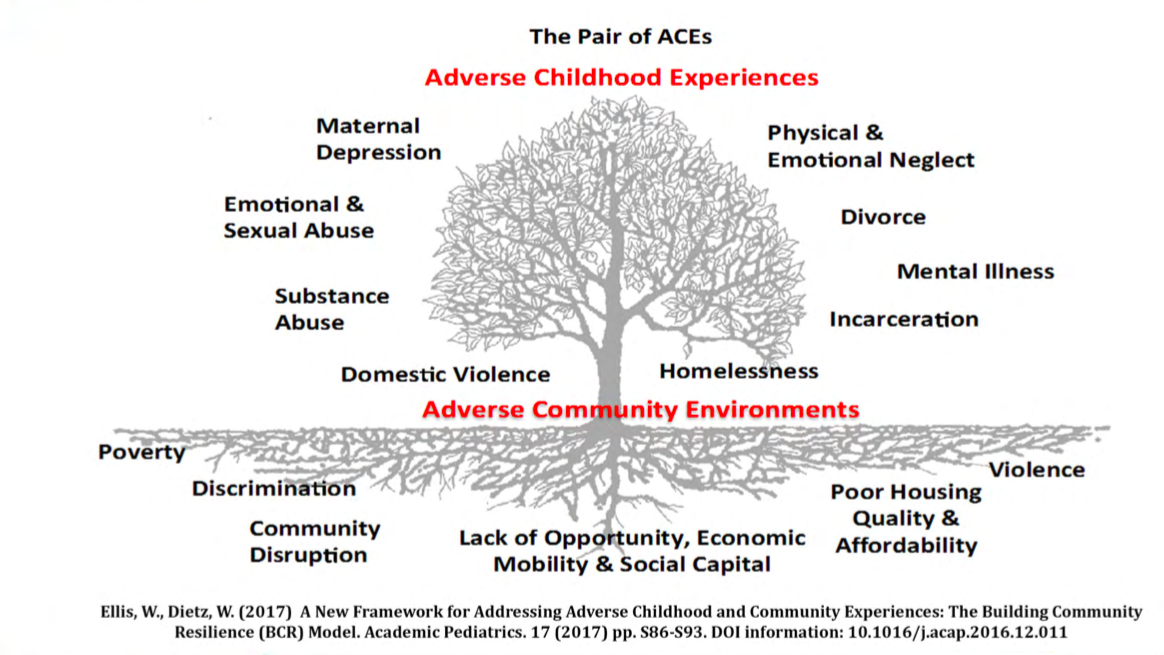 In 1984, Stephen Hayden created an advertisement for the Apple computer. This video won all sorts of awards and set the standards for Super Bowl advertising. At the beginning of the video, we see a blue hall filled with many identically dressed people who look like robots. Fast forward to 1956 and we imagine these people watching a movie about 1984. The whole screen shows the face of a man, from whose mouth the phrases fly out: "Information purification!" and "Unification of Thought!" The people in the audience are absorbing these messages like zombies. The camera then pans to a girl in sportswear with a sledgehammer in her hand, who runs swiftly through the hall. She is wearing red shorts, the only color spot in the entire video. Running down the center aisle, she throws a sledgehammer at the Big Brother screen. The screen explodes and blinding light floods the hall. Then we see the inscription: "On January 24, Apple Computer will introduce the Macintosh - and you will understand why 1984 won't be like 1984.
In 1984, Stephen Hayden created an advertisement for the Apple computer. This video won all sorts of awards and set the standards for Super Bowl advertising. At the beginning of the video, we see a blue hall filled with many identically dressed people who look like robots. Fast forward to 1956 and we imagine these people watching a movie about 1984. The whole screen shows the face of a man, from whose mouth the phrases fly out: "Information purification!" and "Unification of Thought!" The people in the audience are absorbing these messages like zombies. The camera then pans to a girl in sportswear with a sledgehammer in her hand, who runs swiftly through the hall. She is wearing red shorts, the only color spot in the entire video. Running down the center aisle, she throws a sledgehammer at the Big Brother screen. The screen explodes and blinding light floods the hall. Then we see the inscription: "On January 24, Apple Computer will introduce the Macintosh - and you will understand why 1984 won't be like 1984. "
"
All of the above aspects are involved. There is nothing more terrible than the totalitarian society described by George Orwell in the novel 1984. Gym shorts bring a bit of sex appeal; however, there is another subtext. So Mac is a girl. So, so, so... And IBM, therefore, is a guy. In the 1980s, women gained new rights, and the focus is on the war of the sexes. Advertising is replete with different semantic messages. Many have read the book "1984" or watched a movie. Moreover, computer savvy people immediately recognized the allusion to IBM, as the company was often called the Blue Giant due to its huge sales volumes.
In advertising, it is the emotional appeal that is remembered better than other details. And there are reasons for that. The brain remembers the emotional components of an experience better than other aspects of it. You can forget the small details of a small accident, but it's easy to remember the fear you felt when you tried to pull over to avoid a collision.
Research has shown that the emotional response focuses attention on the "substance" of the experience, leaving out the details. Many scientists believe that memory tends to retain the most important of what we encounter, and not the details. Over time, the details can be restored in memory, if you remember the essence. Consequently, the human head tends to be filled with a generalized representation of concepts or events, and not insignificant details that go into oblivion. I am sure that the favorite game of Americans is Jeopardy! exists because we admire people who can do the opposite.
Of course, at work and at school, detailed knowledge is very important for success. Interestingly, you can learn to remember details based on meaning. We know this well from chance encounters in the 1980s between a brain scientist and a waiter.
Watching JC take orders is like watching Ken Jennings play Jeopardy! JC never writes anything down, but has never made a mistake in an order. The menu offers guests over five hundred different dishes (hot appetizers, side dishes, salads, etc.), which is quite impressive in itself. The waiter takes an order from twenty people and does not make a single percent mistake. JC worked at a restaurant frequented by University of Colorado brain researcher Anders Eriksson. Noticing JC's unusual abilities, Eriksson asked for permission to study him. The secret of the waiter's success lay in a well-developed organization system: he always divided the customer's order into different categories, such as appetizers, temperature, garnish. And then he encoded a specific order using an alphabetic system. Salads with blue cheeses were designated with the letter "G", the dish "Thousand Islands" with the letter "T", and so on. He used the same code for other dishes, and then assigned letter codes to a certain visitor and memorized them in this way. The semantic hierarchy allowed him to remember details with ease.
The menu offers guests over five hundred different dishes (hot appetizers, side dishes, salads, etc.), which is quite impressive in itself. The waiter takes an order from twenty people and does not make a single percent mistake. JC worked at a restaurant frequented by University of Colorado brain researcher Anders Eriksson. Noticing JC's unusual abilities, Eriksson asked for permission to study him. The secret of the waiter's success lay in a well-developed organization system: he always divided the customer's order into different categories, such as appetizers, temperature, garnish. And then he encoded a specific order using an alphabetic system. Salads with blue cheeses were designated with the letter "G", the dish "Thousand Islands" with the letter "T", and so on. He used the same code for other dishes, and then assigned letter codes to a certain visitor and memorized them in this way. The semantic hierarchy allowed him to remember details with ease.
“Whether you're a waiter or a brain scientist, if you want to be precise about the little things, don't start with the details.
Focus on the key idea and build the details around the core concepts.”
JC's strategy is based on a principle well known to the scientific community: memory is reinforced by associations between concepts. The experiment was carried out hundreds of times, and the result was always the same: logically grouped words are remembered better than randomly presented ones, on average by 40 percent. This question occupies scientists to this day. Including associations in data representation increases the number of remembered objects. More pieces of intellectual baggage should have made learning difficult, but research suggests otherwise. We are able to reduce the meaning of several words to one, which makes it easier for the brain to remember the details. Therefore, the meaning is above the details.
John Bransford, a gifted researcher and author of the successful book How People Learn, once wondered what separates a beginner from an expert in a particular subject? Bransford identified six characteristics, one of which relates to our question: “Knowledge (of experts) is not just a list of facts and formulas on a particular topic; on the contrary, they are organized around a central concept, or concept, which leads their thought to a certain area.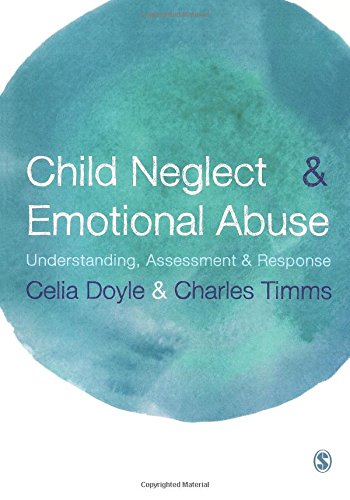
Whether you're a waiter or a brain scientist, if you want to be precise about the little things, don't start with the details. Focus on the key idea and build details around core concepts.
Multitasking is a myth. The brain can only focus on one thing at a time. At first glance, this is an incorrect statement: after all, some things can be done at the same time, for example, walking and talking. Or, say, the brain controls the heartbeat when you read a book. Pianists play with their right and left hands at the same time. Of course, all this applies to multitasking. But I'm talking about the ability of the brain to pay attention to something. You are trying to forcibly use this resource while listening to a boring lecture at school. The same thing interferes with the flight of thought during an uninteresting presentation at work. Attention cannot be paid to different things at the same time.
I recently agreed to help a friend of my high school son with homework, an experience I will never forget. Eric had been working on his laptop for about half an hour when I entered the room. He had an iPod around his neck, and the voices of Tom Petty, Bob Dylan and Green Day came from his headphones; with his left hand he tapped out the rhythm. At least eleven windows were open on the screen, in two of them there was an active correspondence with friends from the MySpace network. In another window, an image was loaded from Google. In the background window, there was an image that Eric was redesigning for a friend from MySpace, and in another window, a video game of tennis was paused.
Eric had been working on his laptop for about half an hour when I entered the room. He had an iPod around his neck, and the voices of Tom Petty, Bob Dylan and Green Day came from his headphones; with his left hand he tapped out the rhythm. At least eleven windows were open on the screen, in two of them there was an active correspondence with friends from the MySpace network. In another window, an image was loaded from Google. In the background window, there was an image that Eric was redesigning for a friend from MySpace, and in another window, a video game of tennis was paused.
Somewhere in the middle of all these tasks, a text program was running containing a document that needed my help. “Music helps me concentrate,” Eric said on his cell phone. - At school, everything is fine with me, I'm just stuck. Thank you for coming". He's really stuck. Eric read a sentence or two, then started typing a message into MySpace, then looked to see if the download had finished, and went back to work. Of course, he was not focused on the task. Does he remind you of someone you know?
Of course, he was not focused on the task. Does he remind you of someone you know?
Research has put an end to this discussion, proving that humans are not capable of multitasking. The brain is not equipped to process several signals that require attention at the same time. Eric, like all of us, just jumped from one thing to another. To understand this, you need to study the third component of Posner's Trinity - the execution system. Let's look at how it works for Eric when he tries to work on a task and this process is interrupted by the message "You got an email!" from his girlfriend Emily.
When Eric starts writing a task from a low start, blood rushes to the anterior prefrontal cortex. This area of the brain, part of the execution system, works like a switchboard, alerting the brain to divert attention to another object.
Step 2: Activation Rule for Job #1
The alarm generated is a two-part message; an electrical signal crackles through Eric's head. The first part of the message contains a request to search for neurons capable of completing the job writing task. The second is a command that will allow you to activate neurons after they are detected. This process is called an activation rule and lasts tenths of a second. Eric begins to carry out the task.
The first part of the message contains a request to search for neurons capable of completing the job writing task. The second is a command that will allow you to activate neurons after they are detected. This process is called an activation rule and lasts tenths of a second. Eric begins to carry out the task.
Step 3: Disconnect
While Eric is typing, the brain's sensory system picks up a signal that he has received a new letter from his girlfriend. Since the order in which the task is written differs from the rules for writing Emily's answer, Eric's brain must switch off from one task and switch to another. That is exactly what is happening. The switchboard notifies the brain about the upcoming change in the object of attention.
Step 4: Activation Rule for Job #2
A new two-part message looking for a suitable activation protocol to respond to Emily's email. As in the first case, the first part sends a command to find rules for writing a response to Emily, and the second sends an activation command. Now Eric can pour out his soul to his beloved. As in the first case, the switching process took tenths of a second.
Now Eric can pour out his soul to his beloved. As in the first case, the switching process took tenths of a second.
Incredibly, these four steps must be completed each time Eric switches from one task to another. But this process is quite laborious, moreover, continuous. Therefore, people do not tend to multitask. You must have often noticed how you lost the thread of the work you started, and you had to start over. Every time we switch to another task, we mutter under our breath: “Well, where did I stop?” The only thing that can be said about those who allegedly multitask is that these people have a good memory, able to pay attention to several signals, but in turn.
It is worth noting that, according to research, if a person is interrupted, then it will take him and a half times more time to complete the task. And the number of mistakes made by him will increase by the same amount.
Some people, mostly young people, easily switch between tasks. If a person is familiar with the tasks, then the execution time and the percentage of errors are much less than with rarely performed ones. However, such behavior for the brain, which is in continuous workflow, is like trying to put the left shoe on the right foot.
However, such behavior for the brain, which is in continuous workflow, is like trying to put the left shoe on the right foot.
A good example is the task of driving a car and talking on a cell phone. Before scientists began to study the degree of distraction when using a mobile phone, no one even imagined how much talking interferes with driving. Chatting while driving is like driving while intoxicated. Recall that it takes a fraction of a second for the brain to switch to another task. Those who like to talk while driving are half a second slower to press the brake pedal in an emergency, slower to pick up normal speed after it and do not keep their distance from the vehicle in front. In half a second, at a speed of over 100 kilometers per hour, a car travels about 15 meters. Considering that 80 percent of accidents occur in just 3 seconds due to driver inattention, increasing the number of task switches increases the risk of an accident. More than 50 percent of the visual cues seen by attentive drivers are missed by phone lovers.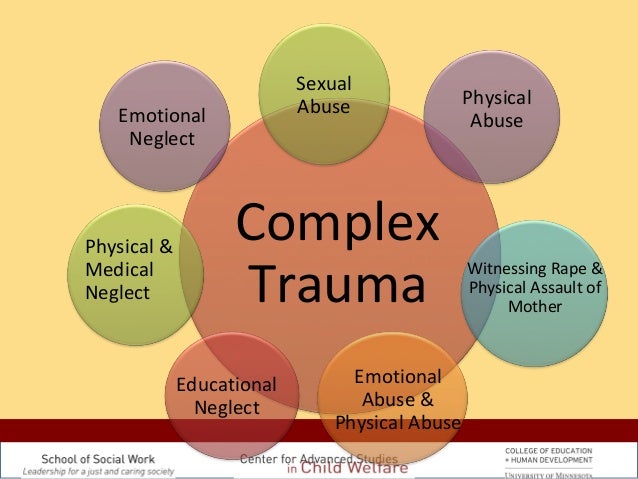 Not surprisingly, they are more likely than others, with the exception of very drunk people, to get into accidents.
Not surprisingly, they are more likely than others, with the exception of very drunk people, to get into accidents.
This applies not only to talking on the phone, but also applying makeup and eating while driving, as well as suffocation due to chewing gum in the airways in an accident. Even trying to simply reach for an object while driving increases the risk of an accident by nine times. Given what we know about the functioning of the human brain, this is not surprising.
The need to take breaks for rest reminded me of a movie called "Dog World". According to my parents, this is the worst movie they have ever seen. They hate this film because it depicts in one scene how a farmer forcibly fattens geese in order to cook foie gras from the liver of birds. With the help of a pipe, the farmer simply pushed food into the throats of poor birds. A special copper ring squeezing the neck prevented the goose from burping food, so the food went further into the digestive system. So the birds were fattened until the excess food led to an increase in the volume of the liver, which, of course, delighted chefs around the world. Of course, this behavior has nothing to do with caring for birds that were sacrificed for profit.
Of course, this behavior has nothing to do with caring for birds that were sacrificed for profit.
“The competence of a teacher does not guarantee the quality of teaching!”
My mother always brought up this story when we talked about good and bad teachers. “Most teachers “overfeed” their students,” she said, “like that farmer from a horror movie!” When I entered college, I understood what she meant. Now, as a professor and with experience working with business people, I appreciate the extent of this habit. What is the most common communication error? They give too much information and not enough time to establish communication. Forced feeding leads to digestion problems. And here students are sacrificed for profit.
Of course, this strategy is understandable: most experts who are well versed in their topic simply forget about what it's like to be a beginner. Even if they remembered this, repeating the basic principles over and over again would quickly bore them. In college, I realized that many professors are fed up with teaching, as they are forced to communicate with students on a very primitive level. It seems that they forgot that for them once this information was completely new and it took time to “digest” it, and therefore certain breaks. The statement is absolutely true: the competence of a teacher does not guarantee the quality of education! This happens not only in school and university classes. I have seen this in sermons, at boardrooms, at product launches, in the media—anywhere information is passed from experts to newcomers.
In college, I realized that many professors are fed up with teaching, as they are forced to communicate with students on a very primitive level. It seems that they forgot that for them once this information was completely new and it took time to “digest” it, and therefore certain breaks. The statement is absolutely true: the competence of a teacher does not guarantee the quality of education! This happens not only in school and university classes. I have seen this in sermons, at boardrooms, at product launches, in the media—anywhere information is passed from experts to newcomers.
“You make a God out of a man - and he leaves you, another makes a beast - he licks his hands and stays”
Recently, billionaire Sergey Akulchev announced a divorce from his wife Olga after 21 years of marriage. The couple has five children. Associate Professor of the Department of Conflictology of KNRTU-KHTI, psychologist Rimma Fedyaeva, especially for BUSINESS Online, decided to analyze why this phenomenon has become common in the business world, and gives some recommendations to women who have left their beloved husband, father and businessman.
A MATURE MAN HAS AN AFFAIR WHEN EVERYTHING IS WELL
Once Socrates informed the inhabitants of Athens: "I intend to devote the rest of my life to clarifying only one question - why people, knowing how to act, nevertheless act differently and more often to the detriment of themselves and their loved ones." Since then, two and a half thousand years have passed, the ruins of that city are in the same place, and people are still far from the answer and continue to make mistakes, stupidities, or simply create difficulties for themselves. Personally, unlike Socrates, I am concerned about not one, but many other professional issues at once. For example: what is missing for rich, successful, smart men who have beautiful, kind wives, mothers of their children, to change the latter for new ones? Or why do some people go through invented ideals to a ripe old age for testing, as a result often regretting the years spent on this in vain, and dream of turning back time in order to stay with their first wife? Reader, I’m actually talking about divorces today, which won’t surprise anyone today, won’t scare anyone, but will only create a lot of psychological, domestic difficulties, bring a lot of insults, misunderstandings, but if a family divorces with an experience of family life, then you can’t avoid talking to colleagues, acquaintances, close, future commitments.
Statistics show that 80% of divorces are initiated by women. The most common reason - 56% - treason. True, you need to understand that a number of reasons precede betrayal: misunderstanding, lack of sex or bad sex, lack of respect for each other, serious domestic problems or, on the contrary, their absence. Yes, when everything is too good, then, unfortunately, divorces also happen. Men start romances (we are not talking about casual and lightweight betrayals, but about deep relationships on the side) often for two reasons: when everything is fine with him in all directions (from a well-fed life and an established business) or when everything is very bad with him ( there is nothing to cherish and there is no point in saving). Further, everything also goes according to the script written by life, although now we are talking about something else. Russia leads the world in the number of divorces. And the official statistics of the last 20 years in Russia is such that a large percentage of divorces occurs in the early period of cohabitation - 1 - 3 years, and also a large percentage falls on those who have a family history of more than 12 - 18 years and are among families with high income (although since 2013 the trend has decreased). Probably, we are talking about divorces of families of businessmen and wealthy officials. Well, divorce in the early stages is clear to us - youth, thoughtlessness, unpreparedness, etc. But about the reasons for the divorce of families with experience ...
Probably, we are talking about divorces of families of businessmen and wealthy officials. Well, divorce in the early stages is clear to us - youth, thoughtlessness, unpreparedness, etc. But about the reasons for the divorce of families with experience ...
If you ask any philosopher, psychologist or just an experienced person, they will all unanimously tell us that a man from 30 to 45 already knows everything, can still do everything and wants everything. But if you hear a compliment addressed to you at 50 - 55 years old and above, that “you are in the prime of life”, then know that for Russian men this is a mixture of compliment, consolation, hypocrisy and stupidity, and any doctor, professional, will confirm this. sportsman. In 80% of cases after 50 years, we have slowed down nervous reactions, a decrease in muscle contraction and endurance, reduced metabolic processes, sparse hair, poor eyesight, tissue degeneration, and most importantly, a weakening of the functions of many important organs. I know that now you will start to remember Gordie Howe, who played hockey until the age of 50, Joe Frazier, who won the world heavyweight boxing title at almost 40, or remember Goethe or Voltaire, who worked in art at 75 and 90 years old, or even some kind of sex giant, for example, Charlie Chaplin, who at 52 married 18-year-old Una O'Neill and knew how to entertain a new young wife several times a day at this venerable age. These are exceptions. We are talking about 80% of men and get the following picture: hot and reckless divorces, and also, according to statistics, on the contrary, already experienced, seemingly stable and more often wealthy men are 40-50 years old. Older men, as a rule, do not leave their wife, but start a second family, where they give birth, where they share their vision of the world and material well-being.
I know that now you will start to remember Gordie Howe, who played hockey until the age of 50, Joe Frazier, who won the world heavyweight boxing title at almost 40, or remember Goethe or Voltaire, who worked in art at 75 and 90 years old, or even some kind of sex giant, for example, Charlie Chaplin, who at 52 married 18-year-old Una O'Neill and knew how to entertain a new young wife several times a day at this venerable age. These are exceptions. We are talking about 80% of men and get the following picture: hot and reckless divorces, and also, according to statistics, on the contrary, already experienced, seemingly stable and more often wealthy men are 40-50 years old. Older men, as a rule, do not leave their wife, but start a second family, where they give birth, where they share their vision of the world and material well-being.
We hear a lot of stories around that he lived with his family for 15 - 20 years and decided to build everything anew with a young woman. After all, there is a successful business, a good wife, adult children, outwardly prosperous life. What is the reason? To condemn such a decision of a man or to welcome? I see that it is impossible to condemn or, on the contrary, support. Everything is not as simple as it might seem. There are many reasons. This is following fashion in a new social society, this is the need for new sexual sensations, this is the desire to assert oneself, this is the belief that the energy of the partner’s youth will give strength and longevity. Or maybe the point is that there is a need to share the accumulated experience and thereby receive approval, gratitude and raise one's own significance in the eyes of a new, young woman and the environment? Or maybe it's all about understanding love and fidelity, honor and dignity, justice and betrayal, love of glory, vanity and the search for the meaning of life.
What is the reason? To condemn such a decision of a man or to welcome? I see that it is impossible to condemn or, on the contrary, support. Everything is not as simple as it might seem. There are many reasons. This is following fashion in a new social society, this is the need for new sexual sensations, this is the desire to assert oneself, this is the belief that the energy of the partner’s youth will give strength and longevity. Or maybe the point is that there is a need to share the accumulated experience and thereby receive approval, gratitude and raise one's own significance in the eyes of a new, young woman and the environment? Or maybe it's all about understanding love and fidelity, honor and dignity, justice and betrayal, love of glory, vanity and the search for the meaning of life.
I read the following words about the meaning of life from one philosopher: “Under the meaning of life, a man wants to have some positive value in the form of truth. ” That is, he wants it to be true, but he also wants this truth to please him. So that the realization of this truth warms him, inspires him, helps him endure difficulties, voluntarily pushing him to material, physical and emotional hardships, etc. By the meaning of life, a man means the truth, which for him has a positive emotional connotation, because the reason and source of the search for the meaning of life lies in the emotional realm. I mean, in my opinion, a man who has achieved a lot - social status, material independence, physical and aesthetic perfection, raised children - really wants all this to be appreciated not by the eyes of a faithful girlfriend called an experienced wife (she knew him differently, supported his weaknesses, helped to cultivate new qualities of character throughout life, helped to go through difficulties), but a completely new young, energetic, cheerful person called a sweet mistress, ready to become his life friend, giving a new positive emotional coloring to him settled and boring life.
” That is, he wants it to be true, but he also wants this truth to please him. So that the realization of this truth warms him, inspires him, helps him endure difficulties, voluntarily pushing him to material, physical and emotional hardships, etc. By the meaning of life, a man means the truth, which for him has a positive emotional connotation, because the reason and source of the search for the meaning of life lies in the emotional realm. I mean, in my opinion, a man who has achieved a lot - social status, material independence, physical and aesthetic perfection, raised children - really wants all this to be appreciated not by the eyes of a faithful girlfriend called an experienced wife (she knew him differently, supported his weaknesses, helped to cultivate new qualities of character throughout life, helped to go through difficulties), but a completely new young, energetic, cheerful person called a sweet mistress, ready to become his life friend, giving a new positive emotional coloring to him settled and boring life.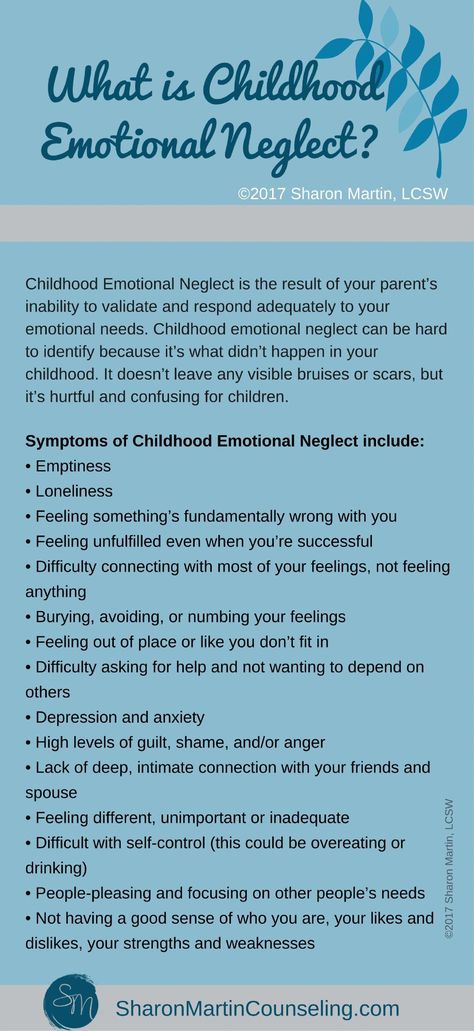 And most importantly, in this case, the man again feels internally young, strong and omnipotent. Another question is how long the terms are and whether there is a fear that you will have to return to the former. There are statistics for this case too: about 80% of men who have been married for 12 or more years wish to return to their old relationship during the first 15-17 months of a new life. Psychologists even have the term "syndrome of the 17th month." And many return, however, then they live in a qualitatively new relationship, and for better or worse, it all depends on the woman who decided to accept her man. Therefore, when parting with a man, choose the tactics of patience, it is more promising for family reunification. By the way, sometimes it happens that, upon returning, a man realizes that he no longer needs that ex, but this is also a topic for another conversation.
And most importantly, in this case, the man again feels internally young, strong and omnipotent. Another question is how long the terms are and whether there is a fear that you will have to return to the former. There are statistics for this case too: about 80% of men who have been married for 12 or more years wish to return to their old relationship during the first 15-17 months of a new life. Psychologists even have the term "syndrome of the 17th month." And many return, however, then they live in a qualitatively new relationship, and for better or worse, it all depends on the woman who decided to accept her man. Therefore, when parting with a man, choose the tactics of patience, it is more promising for family reunification. By the way, sometimes it happens that, upon returning, a man realizes that he no longer needs that ex, but this is also a topic for another conversation.
LACK OF FREEDOM LEADS TO DIVORCE
Let's find out the reasons why businessmen leave their old wives. Let's call them not old, but relatives, because they lived a long time, they checked a lot, children were raised, and the rhythm of the heartbeat was already similar.
Let's call them not old, but relatives, because they lived a long time, they checked a lot, children were raised, and the rhythm of the heartbeat was already similar.
First, one of the reasons is simple and understandable: as Edgar Howe used to say, “Undoubtedly, love exists, otherwise why so many divorces?”
Love is a strong overexcitation of the central nervous system. This is when feelings reach irrational strength, when they “carry”, when “the roof moves down”. A state of constant affect. Here it is just right to remember the sage Solomon: “Everything will pass,” was carved on his ring. “This, too, shall pass,” was carved on it from the inside.
It is hard and difficult for a man to leave an established life, status, established relationships, and then a feeling clouded his head. But the most terrible and most important thing is different: the words and actions of the two women with whom he is communicating at the moment do not categorically coincide, and this is the whole point. In the end, the brain explodes, he no longer needs anything, and he goes to a place where there are no showdowns, interrogations, swearing.
In the end, the brain explodes, he no longer needs anything, and he goes to a place where there are no showdowns, interrogations, swearing.
Secondly, a man begins to deepen into relationships because of the lack of freedom that his wife deprived her of by her control, suspicions, checks. He married out of youth and stupidity. I didn’t go for a divorce so as not to injure my children, to develop material well-being, but I met my beloved woman and decided. He wants to be free and independent from an experienced and omniscient wife who knows his weaknesses, taught at the institute, attached to family values, even gave birth to children at her own discretion. At the age of 20, this man depended on her, he was still not old enough, even infantile. In wives of the same age, nature itself has the right to judge, choose whether to marry her or not, that is, to give a kind of assessment to a man: you are my strongest, the best, and they need to hear this for the next 10 years, they strive to receive confirmation of this assessment. This is how a woman manages her husband in the first decade after marriage.
This is how a woman manages her husband in the first decade after marriage.
However, the situation changes dramatically after a man passes the mystical age of 33. Having gained experience, material independence, he understands that he has become an adult, he has realized his self. Here, either a change of roles should occur, where the woman will transfer part of the rights to the “grown-up” husband, or he leaves for another. He wants a position in which he has maximum opportunities.
Thirdly, vanity and pride, and I consider this reason to be one of the main reasons for a male businessman. When he tries his best to impress and evaluates the external environment, he regulates his own self-esteem and pride. He goes to a beautiful, young and sometimes stupid, to teach himself, pass on knowledge, and amuses his self. By the way, they leave for this reason even when they want to return the period of youth again, because with a new woman, from his point of view, everything starts anew.
Fourth, the consumer attitude towards a male businessman in the family on the part of his wife, children and her relatives. He works a lot, brings a lot, tries a lot, invests a lot and receives less of the most important thing: appreciation, respect, admiration, gratitude, support. In this case, a man often molts to another, they believe, listen, inspire, inspire, especially at first, he will definitely get it, and then everything depends on the mental coefficient of the new woman and her natural wisdom.
Fifth, the age discrepancy between men and women in the peaks of sexual need.
Even Oscar Wilde said: “In order to conquer a man, it is enough for a woman to awaken the worst that is in him. You make God out of a man - and he leaves you, the other makes a beast - and he licks her hands and stays with her.
At the age of 45 - 55 and more, a man can no longer do as much as he would like, and he needs a new emotional-sexual object. A woman at this age can do a lot and wants a lot, but her husband is no longer interested in her, she does not excite, everything is clear with her. Then everything goes according to the written script: he leaves.
Then everything goes according to the written script: he leaves.
Sixthly, a man in business grew up socially, psychologically, professionally, physically, after all, and his wife stayed at home and created the so-called home front. He was tired of being in the "comfort zone" - everything is clean, thought out, known, calculated and slightly fed up with everything. He knows that the houses will be accepted back in any case, and often leaves. That is, he allows himself any experiments.
ACCEPT AND FORGIVE
There may be different reasons, for example, revenge. In his youth, he forgave his wife for infidelity, and when he achieved inner strength, independence, confidence, he decided to take revenge. Or, for example, excessive male energy, requiring new, pleasant and strong sensations based on the position “I can do anything” or “I am a free independent person and do what I want. ”
”
What to do? Don't know. Everyone decides for himself. A man who has achieved a lot in society knows what duty, devotion, morality are. Of course, he knows that according to the law he can marry as many times as he likes, but morally ... he betrayed. Betrayal is offensive in essence, and if you look from the other side, then the above reasons can be good for a person to start all over again. And the romantics will say that in general they don’t care about all your listed reasons, the main thing is that you met love. Well, they are right. A smart woman will let go and wish you happiness.
I, in turn, can urge you to remember that there are three strategies of behavior for a woman who is left behind when parting:
- Aggression - destroy everything, send everyone far away on an erotic journey, inflict pain. In this case, your man will only cross himself and be even more convinced of the decision made - to leave.
- Cunning and manipulation - return by humiliation, blackmailing children, inventing an imaginary pregnancy, etc.
 Don't do it! Men are smart, they can't always explain everything, but they feel right. This "concert" will only cause internal rejection in him. Temporarily, maybe he will remain, but you yourself will be disgusted by the humiliation experienced. Yes, and in the eyes of a loved one, you will fall heavily.
Don't do it! Men are smart, they can't always explain everything, but they feel right. This "concert" will only cause internal rejection in him. Temporarily, maybe he will remain, but you yourself will be disgusted by the humiliation experienced. Yes, and in the eyes of a loved one, you will fall heavily. - Worthy acceptance - an adequate assessment of what is happening, accepting her as she is. Keep respect for the years you have lived together. And most importantly, this strategy of behavior is more promising for the resumption of relations. And even if they do not resume, then in his eyes you will remain a worthy woman. Therefore, while your loved one has made a decision and left you, do not interfere with him, do not throw tantrums, but, having recovered from the first period of emotional shock (usually it lasts 10-12 weeks), start living slowly - work on yourself, read a lot, start a hobby , be keenly interested in the secrets of a sensual love game, do not be greedy with a soul, do not be cunning, do not lie, be inspired by beauty, enjoy the environment, have a scope in your actions.

Learn more
